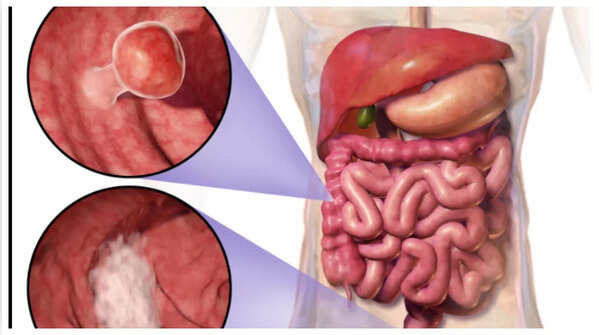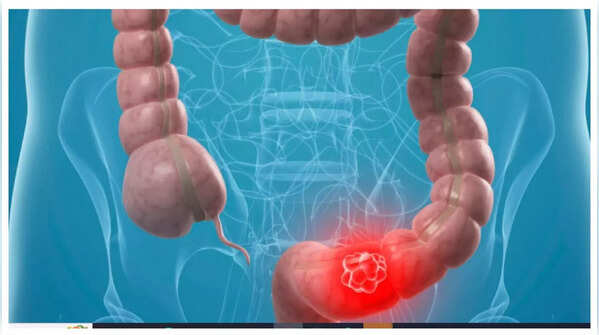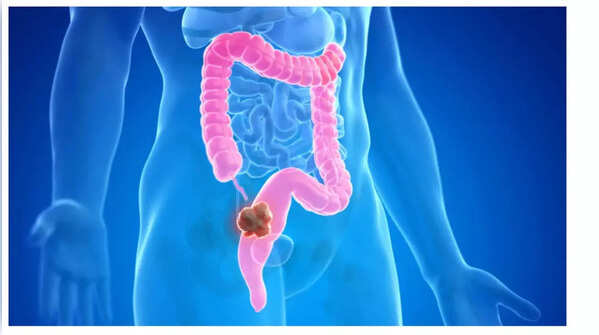Colon cancer, also known as colorectal cancer, develops in the colon or rectum. It often begins as small, noncancerous clumps of cells called polyps that can become cancerous over time. While most cases occur randomly, factors like family history, obesity, and lifestyle can increase risk. Symptoms can be mild and mistaken for common digestive issues, but some warning signs should not be ignored.

One of the earliest indicators of colon cancer is a noticeable alteration in bowel habits. This can manifest as:
These changes might seem insignificant and attributed to diet, stress, or minor infections. However, persistent bowel changes lasting more than a few days could signal a growing tumor disrupting normal bowel movements.

The presence of blood in stool should always be a cause for concern. It can appear as:
In some cases, the bleeding might be minimal and undetectable to the naked eye, leading to anemia over time. While blood in the stool can result from various conditions like hemorrhoids or infections, ruling out colon cancer is crucial, especially if it recurs or is accompanied by other symptoms.

Persistent abdominal discomfort is another early symptom that is often overlooked. This may include:
Such discomfort can be mistaken for indigestion or minor digestive issues like constipation. However, ongoing pain unrelated to diet or lifestyle changes could indicate a tumor causing irritation or blockage in the colon.

Unexplained and persistent fatigue and weakness can be a subtle sign of colon cancer, particularly when accompanied by other symptoms. Slow, unnoticed bleeding in the colon can lead to iron deficiency anemia. The body's reduced red blood cell count impairs oxygen transport, resulting in fatigue, shortness of breath, and weakness. While these symptoms may be attributed to stress or lack of sleep, it is important to seek medical evaluation.

Losing weight unintentionally is a common symptom in most cancers, including colon cancer. When the body fights cancer, the immune system works overtime, and tumors can affect digestion and appetite. If you experience significant weight loss without changes in diet or exercise, consult a doctor. While often appearing later, this can sometimes be an early warning sign.
Disclaimer: This article is for informational purposes only and does not substitute professional medical advice. Always consult with a qualified healthcare provider for any health concerns.
Sources:

Adopting a well-balanced and nutritious diet is paramount for overall health.

It is crucial not to disregard any of the mentioned symptoms.

A cancer diagnosis often triggers shock, disbelief, fear, anxiety about treatment, and concerns about mortality.

Consult a doctor if you experience any of these symptoms without delay.

Exercise is helpful for preventing ailments, including cancer.

Ensure you don't overlook these symptoms.

If you observe these signs, promptly consult a doctor.

Do not ignore these signs for your well-being.

Identify the symptoms before it's too late to stay healthy.
Newer articles
Older articles
 Could You Have Prediabetes? 5 Warning Signs to Watch For
Could You Have Prediabetes? 5 Warning Signs to Watch For
 New Zealand Announces Packed Home Cricket Schedule Featuring Australia, England, West Indies & South Africa
New Zealand Announces Packed Home Cricket Schedule Featuring Australia, England, West Indies & South Africa
 Rishabh Pant's "Revolutionary" Cricket Redefining the Game, Says Greg Chappell
Rishabh Pant's "Revolutionary" Cricket Redefining the Game, Says Greg Chappell
 Gavaskar Calls for Kuldeep Yadav's Inclusion in Second Test Amid Bumrah Fitness Concerns
Gavaskar Calls for Kuldeep Yadav's Inclusion in Second Test Amid Bumrah Fitness Concerns
 Gujarat Cricket Association to Introduce New T20 League for 2025-26 Season
Gujarat Cricket Association to Introduce New T20 League for 2025-26 Season
 Hetmyer's Heroics: Last-Ball Six Seals Record-Breaking Chase for Seattle Orcas Against Pollard's MI New York
Hetmyer's Heroics: Last-Ball Six Seals Record-Breaking Chase for Seattle Orcas Against Pollard's MI New York
 FIFA Club World Cup 2025: Upsets, Messi Magic, and World Cup Concerns Emerge From Group Stage
FIFA Club World Cup 2025: Upsets, Messi Magic, and World Cup Concerns Emerge From Group Stage
 Kavya Maran on Viral Fame: SRH CEO Addresses Her Now-Famous IPL Reactions
Kavya Maran on Viral Fame: SRH CEO Addresses Her Now-Famous IPL Reactions
 SA20 Auction: Teams Allowed Six Player Retentions, Salary Cap Boosted to $2.3M
SA20 Auction: Teams Allowed Six Player Retentions, Salary Cap Boosted to $2.3M
 Jaiswal Aims for Historic Milestone: India Star Eyes Gavaskar's 49-Year-Old Record in Edgbaston Test
Jaiswal Aims for Historic Milestone: India Star Eyes Gavaskar's 49-Year-Old Record in Edgbaston Test